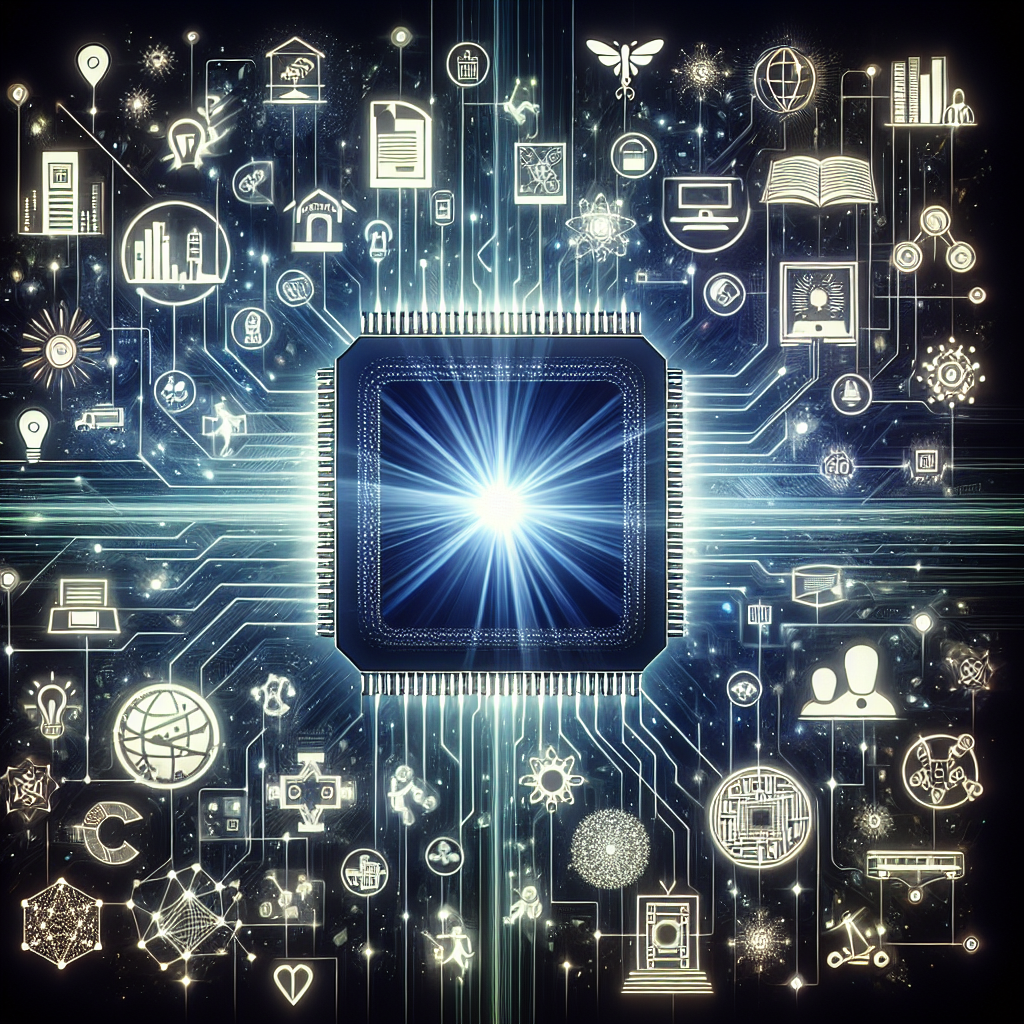Exploring the Potential of AGI: How It Could Revolutionize Society
Artificial General Intelligence (AGI) is a term that refers to a type of artificial intelligence that possesses the ability to understand, learn, and apply knowledge in a manner similar to that of a human being. While current AI technologies are limited to performing specific tasks within a narrow domain, AGI has the potential to revolutionize society by enabling machines to think and reason like humans.
In this article, we will explore the potential of AGI and its implications for various aspects of society, including healthcare, transportation, education, and more. We will also address some common questions and concerns about AGI and its impact on the future.
AGI in Healthcare
One of the most promising applications of AGI is in the field of healthcare. With the ability to analyze vast amounts of medical data and make accurate diagnoses, AGI could potentially revolutionize the way diseases are detected and treated. For example, AGI-powered diagnostic tools could help physicians identify diseases at an early stage, leading to better outcomes for patients.
AGI could also play a crucial role in drug discovery and development. By analyzing data from clinical trials and scientific research, AGI could help researchers identify new drug candidates more quickly and accurately than ever before. This could lead to the development of more effective treatments for a wide range of diseases, including cancer, Alzheimer’s, and diabetes.
AGI in Transportation
Another area where AGI could have a major impact is transportation. With the rise of autonomous vehicles, AGI-powered systems could help improve road safety and reduce traffic congestion. By analyzing real-time traffic data and making decisions based on the current conditions, AGI could help self-driving cars navigate complex road environments more effectively.
AGI could also revolutionize public transportation systems by optimizing routes, schedules, and fares to improve efficiency and reduce costs. By analyzing passenger data and predicting demand patterns, AGI could help transportation authorities better allocate resources and provide a more seamless travel experience for commuters.
AGI in Education
In the field of education, AGI could help personalize learning experiences for students by analyzing their strengths, weaknesses, and learning preferences. By tailoring educational materials and assignments to individual students’ needs, AGI could help improve academic performance and engagement in the classroom.
AGI could also play a role in developing new educational tools and technologies that make learning more interactive and engaging. For example, AGI-powered tutoring systems could provide personalized feedback and guidance to students, helping them master difficult concepts and improve their skills in various subjects.
AGI in Finance
In the financial industry, AGI could help improve risk management and decision-making by analyzing vast amounts of data and identifying patterns and trends that human analysts might miss. By predicting market fluctuations and identifying potential opportunities and risks, AGI could help financial institutions make more informed investment decisions and reduce the likelihood of costly errors.
AGI could also help detect and prevent fraud by analyzing transaction data and identifying suspicious patterns or anomalies. By automating the process of monitoring and investigating fraudulent activities, AGI could help financial institutions protect their customers’ assets and maintain the integrity of the financial system.
AGI in Entertainment
In the entertainment industry, AGI could help create more immersive and engaging experiences for audiences by analyzing their preferences and generating personalized content. For example, AGI-powered recommendation systems could help users discover new movies, TV shows, and music based on their viewing and listening habits.
AGI could also play a role in content creation by generating original works of art, music, and literature. By analyzing existing works and synthesizing new ideas and styles, AGI could help artists and creators push the boundaries of creativity and innovation in the entertainment industry.
FAQs
Q: What is the difference between AGI and narrow AI?
A: Narrow AI refers to artificial intelligence systems that are designed to perform specific tasks within a limited domain, such as image recognition, natural language processing, or playing games. AGI, on the other hand, refers to AI systems that possess the ability to understand, learn, and apply knowledge in a manner similar to that of a human being.
Q: How close are we to achieving AGI?
A: While significant progress has been made in the field of artificial intelligence in recent years, we are still far from achieving true AGI. Researchers continue to work on developing AI systems that can think and reason like humans, but many challenges remain, including understanding human cognition, developing robust learning algorithms, and ensuring the ethical and safe deployment of AGI.
Q: What are the potential risks of AGI?
A: As with any powerful technology, AGI poses potential risks and challenges that must be addressed. These include concerns about job displacement, ethical considerations, cybersecurity threats, and the potential for misuse or abuse of AGI systems. It is important for researchers, policymakers, and industry leaders to work together to ensure that AGI is developed and deployed in a responsible and ethical manner.
In conclusion, AGI has the potential to revolutionize society by enabling machines to think and reason like humans. From healthcare and transportation to education and entertainment, AGI could have a profound impact on various aspects of our lives. While there are still many challenges and uncertainties surrounding AGI, the potential benefits of this technology are vast and exciting. It is important for researchers, policymakers, and industry leaders to work together to realize the full potential of AGI and ensure that it benefits society as a whole.

